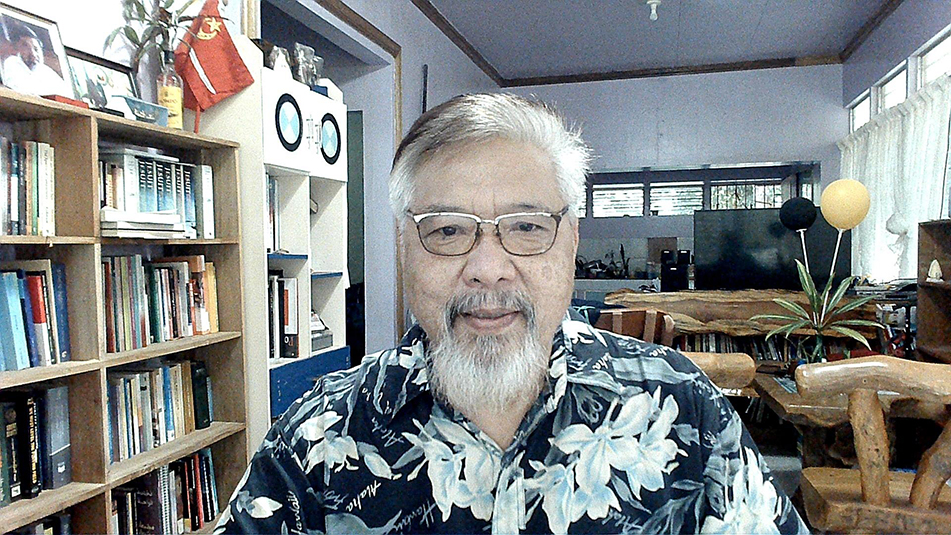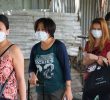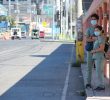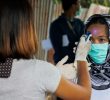
Fr. Eliseo Mercado, Jr. (Taken from Mercado’s FB page)
In his teenage years, Fr. Eliseo Mercado Jr. thought of a career in politics. But after hearing Fr. Bertrand de Merz talked in his school calling for “real leaders of men” to do missionary work in Muslim communities in Mindanao, he changed his mind and joined the mission.
Fr. ‘Jun’ Mercado’s 54 years of priesthood is marked with his peace advocacy work with the Moro peoples in their struggle for autonomy. He died on May 23, his community the Oblates of Mary Immaculate announced he died of a heart attack after battling COVID-19 for weeks 19 at the Cotabato Regional Hospital. He was about to celebrate his 73rd birthday on May 29.
Mercado’s family hails from Bulacan and Manila, his father was an American trained World War II pilot. He entered the seminary in 1964 at age 16 after hearing Fr. De Merz, then an influential speaker, introduced the Oblates of the Missionary Immaculate to his school.
“(W)hat attracted me was Mindanao… and the Sultanates, because we were romantic (about it),” Mercado said in his last video interview for the OMI released last February. “It was a pioneer work at that time, and they needed real men, leaders to work with the Muslims also.” The OMI then was the only Catholic presence in Cotabato and Sulu.
After his ordination in 1967, he veered away from the “traditional, very churchy work” of the priesthood, and chose to immersed into the Muslim community. He was inspired by a priest who continued his mission work even after being hacked by a “juramentado”. “Some will be afraid, but I was attracted because of that danger.” He said.
His early years in the priesthood saw him join an anthropological research team led by Fr. Gerald Rickson, where he immersed with the Tawguimba, a group of Tausugs in Indanan and later in another community in Parang, Maguindanao. He researched on Muslim rituals and gathered artifacts for the museum in Notre Dame of Jolo which is run by the OMI.
Mercado later pursued Islamic studies in Egypt, where he embraced the Badaliyya, a practice influenced by Louis Massignon and St. Francis of Assisi that called for Christians to offer themselves to Muslims.
One of his early experiences of violence happened on July 14, 1975, when two grenades were lobbed into the Notre Dame School of Dulawan in Datu Piang, Maguindanao. Fr. Mercado carried two second year high school students into the nearest hospital but both died in his arms.
Mercado said the two boys, Abdul Rakman Tungaw and Stephen Chu marked him for life. When he published his first book, the two boys were mentioned in his dedication.
During Martial Law, Mindanao has seen the rise of the Moro National Liberation Front and the New People’s Army. Priests, nuns and bishops were also deep into human rights and justice work. Fr. Mercado became one of the Mindanao representatives for the Bagong Alyansang Makabayan (BAYAN) in 1985, and was also elected national vice president of the group.
Mercado recalled he was identified as a figure in the “left tradition in Mindanao” because of his work with the Moro people, and his role in Bayan was a call for a “united front in Mindanao” against the Marcos dictatorship. Marcos was ousted through People Power in 1986.
He became active in peace-building in the 1990s. As president of Notre Dame University in Cotabato City in 1992, he established the Institute of Peace Education. He became involved in the peace talks with the MNLF and the Moro Islamic Liberation Front. He was appointed chair of the National Peace Council that sought out both fronts in the peace talks. He was also once designated as Chairperson of the Independent cease-fire Monitoring Committee between the government and the MILF.
Mercado became recognized as a source on Islamic studies and peace policy issues. He was senior adviser for the Institute of Autonomy and Governance.
For his contributions, he was given awards by three presidents – the Presidential Award from the late Corazon Aquino, Presidential Citation for Outstanding Service and Contribution to Peace from Fidel Ramos, and a Fellowship Awards from Benigno Aquino, Jr.
In his passing, the Bangsamoro Autonomous Region in Muslim Mindanao (BARMM) Chief Minister Ahod Ebrahim paid tribute to Mercado. “His knowledge and works on human rights, political transitions, poverty alleviations, and social reforms have greatly contributed to the process,” his statement reads.
Fr. Jun had reflected about his “Christian presence in the midst of the Muslims”, saying this is not the “mainstream” work of priests. He said this is a reality that “can be understood in a situation where Christians are a minority.”
He defines this vocation as a “servant service in solidarity while understanding the pluralisms of faith”
Indeed, only a few have ventured to integrate and engage with the Moro people like Fr. Jun did in his fifty years of priesthood in the Muslim communities of Mindanao.










